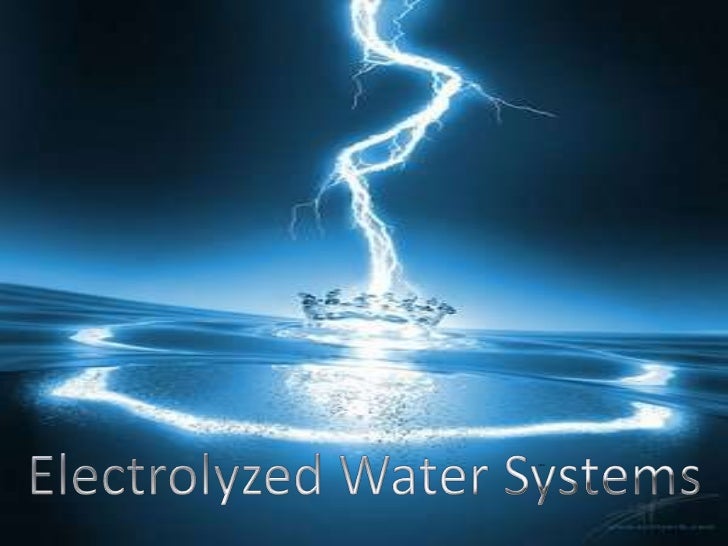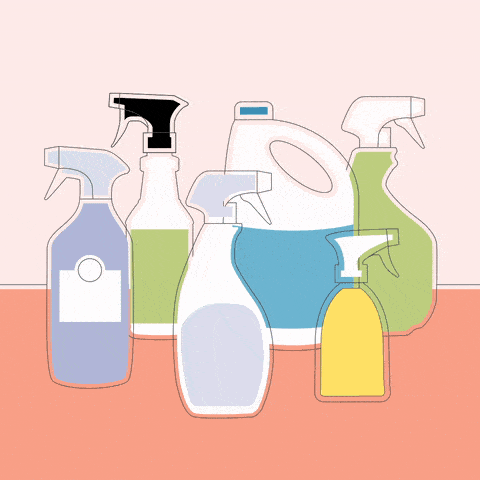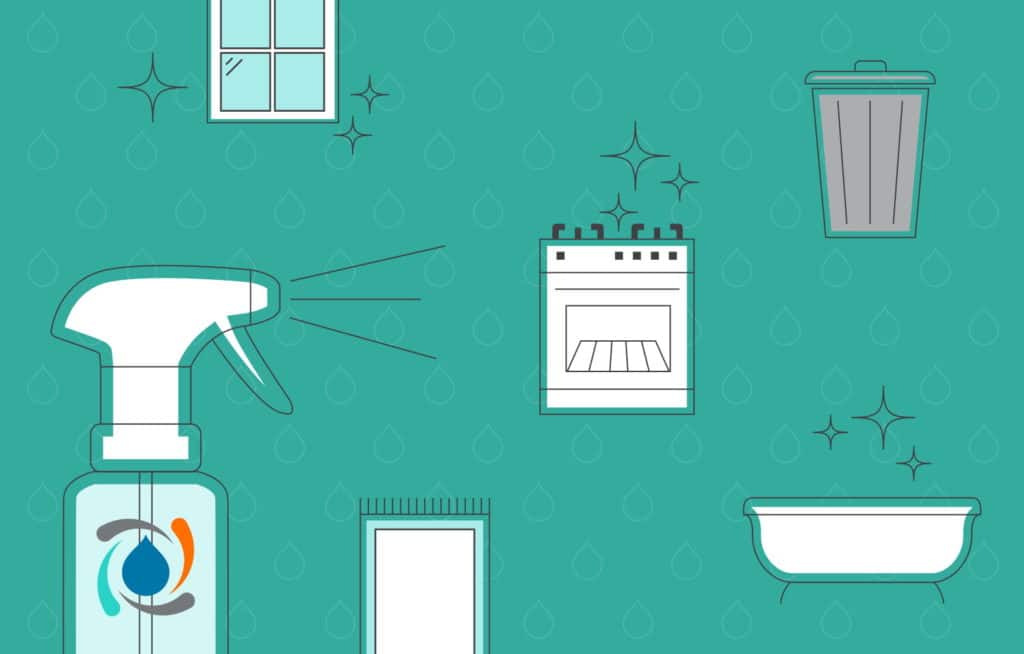Water electrolyzed system slideshare
Table of Contents
Table of Contents
Hospitals are expected to be clean and sterile, but unfortunately, that’s not always the case. Most hospital-acquired infections occur when patients are recovering from medical procedures. Therefore, maintaining the highest levels of cleanliness is critically important in all areas of the hospital. Electrolyzed water cleaning hospitals is a technology that can improve the cleanliness and infection control standards in hospitals.
The challenges of hospital cleaning
Cleaning hospitals is a massive undertaking for staff, yet it is essential in preventing the spread of infectious diseases. Moreover, environmental cleanliness is increasingly becoming an important factor in maintaining patient safety. Hospital-acquired infections are a leading cause of mortality in healthcare systems around the world, resulting in longer hospital stays, additional treatments, higher healthcare costs, and increased mortality rates. Traditional cleaning methods using chemical disinfectants have many shortcomings, including high toxicity, corrosiveness, and long-lasting chemical residues. These residues make surfaces sticky and attract dirt, and when not removed, they can promote microbial growth.
The purpose of Electrolyzed water cleaning hospitals
Electrolyzed water cleaning hospitals is an innovative technology providing hypochlorous acid (HOCl), a potent disinfectant produced from water and salt, for surface cleaning, sanitizing, and deodorizing. This process allows hospitals to clean and disinfect without exposing staff, visitors, and customers to harmful chemicals.
The main benefits of using electrolyzed water cleaning in hospitals
Electrolyzed water cleaning hospitals technology can greatly improve the cleaning and disinfection processes of hospitals in several ways. Firstly, it’s more environmentally friendly, reducing the use of harmful chemicals that can harm patients, staff, and the environment. It’s also cost-effective since it eliminates the need to purchase different chemical disinfectants for different surfaces. Furthermore, when electrolyzed water is used in the cleaning process, it leaves no residue, making it easier to clean and reducing the risks of cross-contamination. Electrolyzed water cleaning can be used to disinfect all surfaces in the hospital, including patient rooms, waiting areas, and bathrooms, providing a deeper level of disinfection.
Personal experience
I started working in a hospital a few years ago, and the number of infectious cases was alarming. The hospital used traditional cleaning methods that didn’t seem to work as they should. That’s when the management decided to switch to electrolyzed water cleaning hospitals, and I noticed a significant improvement in the cleanliness levels in my work environment. The surfaces remained fresh, and there was no build-up of dirt, unlike when we used chemical disinfectants.
 Advantages and limitations of Electrolyzed water cleaning hospitals
Advantages and limitations of Electrolyzed water cleaning hospitals
Some of the advantages of using electrolyzed water cleaning hospitals include:
- The reduced need for harmful chemicals in cleaning surfaces which reduces exposure to staff, visitors, and patients to the chemicals
- The cheap cost of running the electrolyzed water system
- The elimination of chemical residue from surfaces improving the overall cleanliness of the facility
However, some of the limitations that come with using Electrolyzed water cleaning hospitals technology include:
- The systems sometimes require large investments for installation and maintenance
- The process of electrolyzed water cleaning may take longer compared to the traditional cleaning methods
 How does Electrolyzed water cleaning hospitals work?
How does Electrolyzed water cleaning hospitals work?
Electrolyzed water cleaning hospitals technology requires a machine that uses salt, water, and electricity to produce HOCl solution. Saltwater solution is electrolyzed, creating a hypochlorous acid solution. This solution is then sprayed on surfaces, and it oxidizes and eliminates any bacteria or viruses present. HOCl solution works through the process of oxidation, killing pathogens by reacting with their proteins, lipids, and cell membranes. The machine requires maintenance to ensure that it is producing an adequate amount of HOCl for use.
Personal Experience
I worked in a hospital that started using an electrolyzed water cleaning system in the surgical operation rooms. The results were visible. The operation rooms remained sterile for 24 hours, providing a safe environment for patients.
 Question and Answer
Question and Answer
What is electrolyzed water?
Electrolyzed water is a technique used to generate hypochlorous acid (HOCl), a powerful disinfectant that is non-toxic and non-corrosive. The process utilizes water and salt to create the solution, and it is used to clean, sanitize, and deodorize surfaces.
Does electrolyzed water kill all types of bacteria?
Yes, the hypochlorous acid produced through the electrolysis process can kill a broad range of bacteria and viruses, including Escherichia coli (E. coli), Listeria, Methicillin-resistant Staphylococcus aureus (MRSA), Norovirus, Pseudomonas aeruginosa, and Salmonella. The technology can eliminate up to 99.9% of bacteria and viruses in hospitals.
What is the procedure for using electrolyzed water cleaning hospitals?
The electrolyzed water cleaning hospital process involves producing the HOCl solution from water, salt, and electricity using an electrolyzer machine. The HOCl solution should then be sprayed on surfaces to be disinfected, left for a few minutes to allow time for disinfection to occur, and then wiped off. It’s that simple!
What benefits does electrolyzed water cleaning hospitals technology provide?
Electrolyzed water cleaning hospitals technology is beneficial because it is environmentally friendly, cost-effective, and effective in eliminating stains, deodorizing, and disinfecting surfaces. The technology requires low maintenance, reduces the risk of cross-contamination, and ensures the safety of patients, visitors, and staff in hospitals.
Conclusion of Electrolyzed water cleaning hospitals
In summary, Electrolyzed water cleaning hospitals technology is a solution that hospitals can use to maintain a clean and sterile environment for patients, staff, and visitors. The technology has several advantages over traditional cleaning methods, including that it eliminates harmful chemicals while reducing environmental pollution. Although there are some limitations to the technology, the benefits outweigh the disadvantages. Hospitals should therefore consider using the technology to reduce healthcare-associated infections and provide a healthy environment for patients and staff.
Gallery
Electrolyzed Water System

Photo Credit by: bing.com / water electrolyzed system slideshare
Hypochlorous Acid AKA Electrolyzed Water— Could Be Positioned To Upend

Photo Credit by: bing.com / electrolyzed hypochlorous ions disinfectant grower passed surface disrupt disinfectants makers upend positioned aka
Electrolyzed Water System, Generate Hypochlorous Acid (HOCl) Cleaner

Photo Credit by: bing.com / electrolyzed water system cleaner hocl generate hypochlorous acid disinfectant weeks lead
What Is Hypochlorous Acid (HOCl) Aka Electrolyzed Water? | Offshore

Photo Credit by: bing.com / electrolyzed hypochlorous wate splashing janitorial hocl
Water Sanitizer A Safer Solution For Cleaning Kills Bacteria Naturally

Photo Credit by: bing.com / water solution electrolyzed cleaning sanitizing process sanitizer eo safer natural eow activated naturally kills bacteria hospitals retail hotels food great




